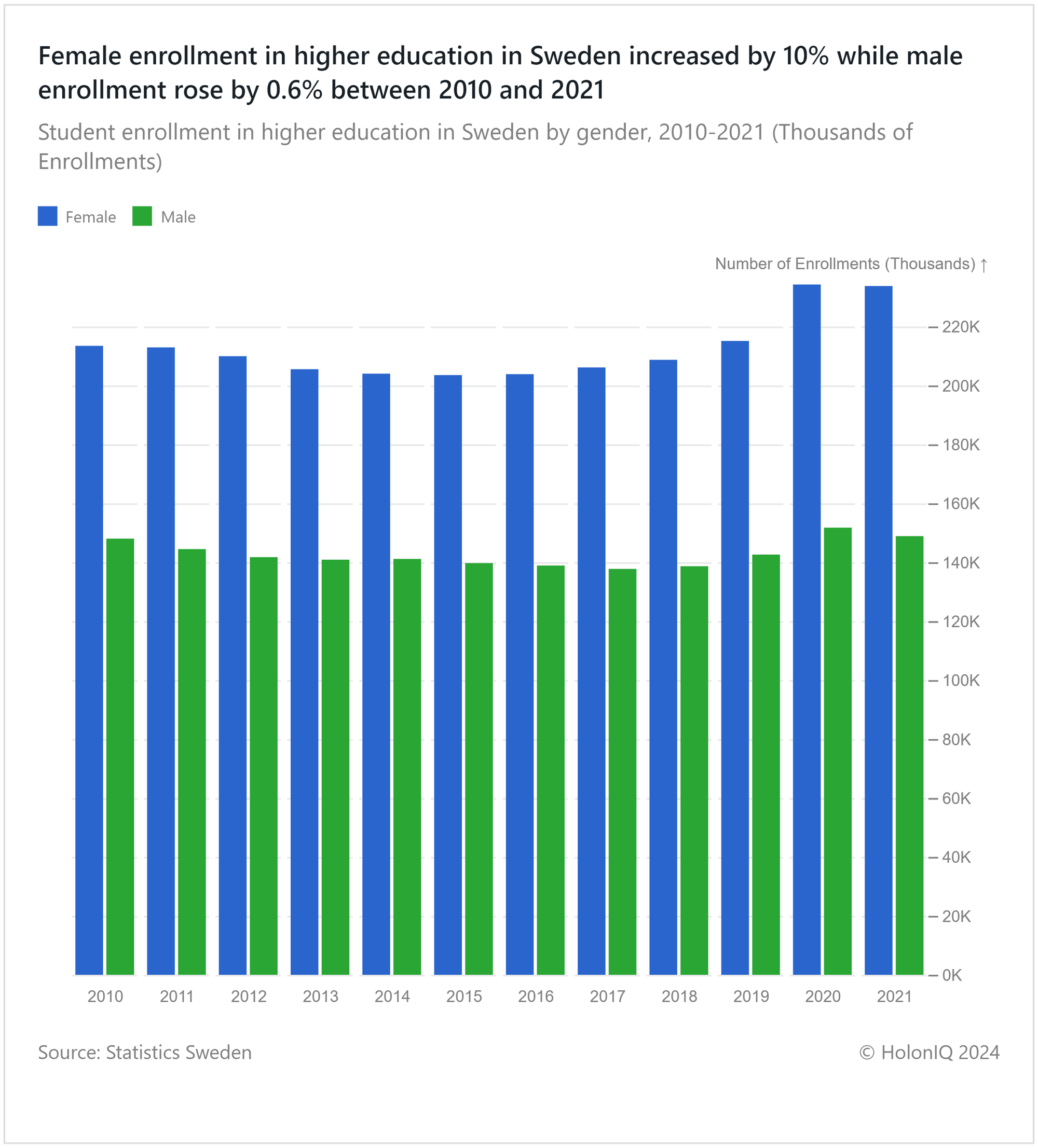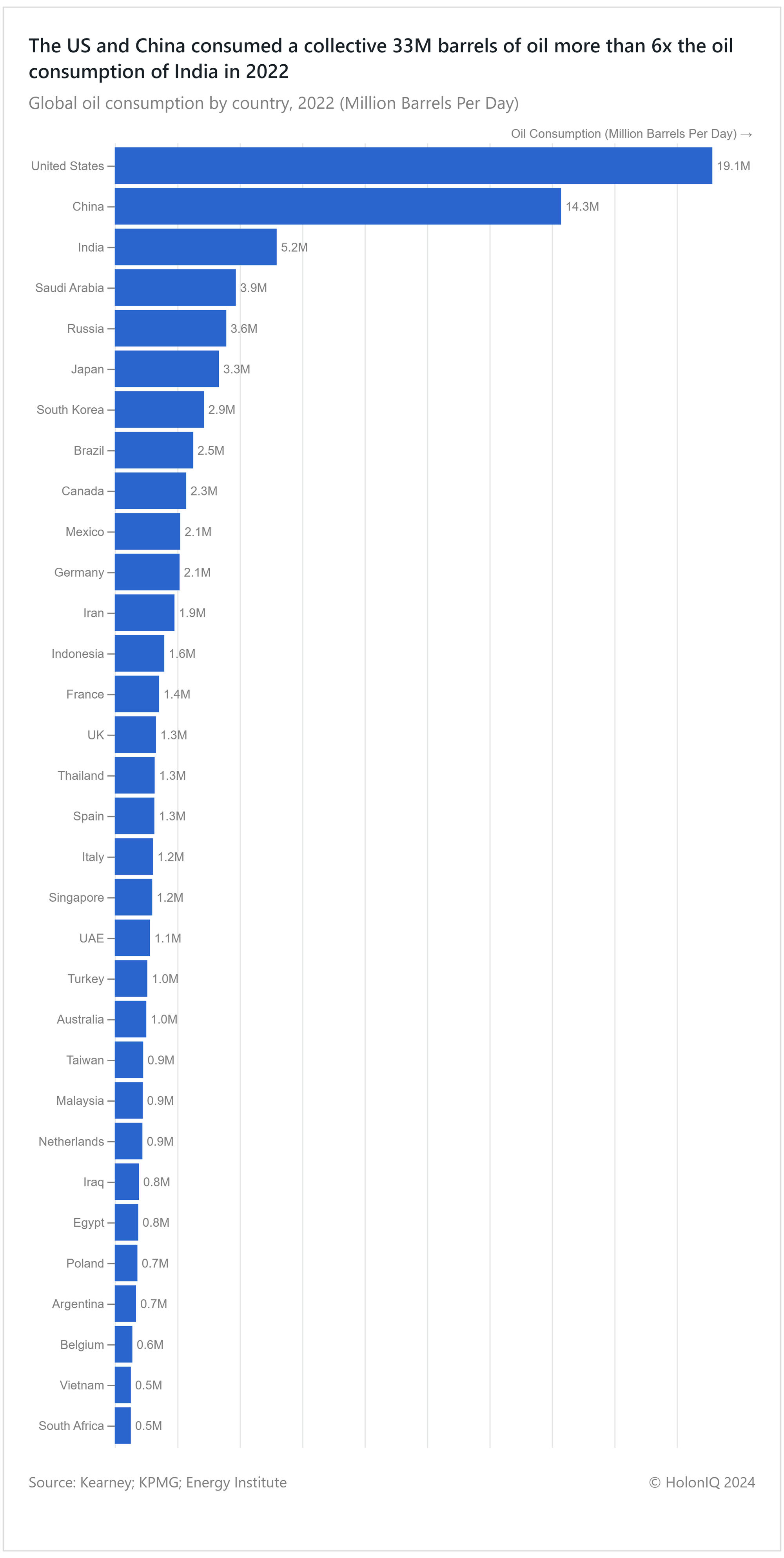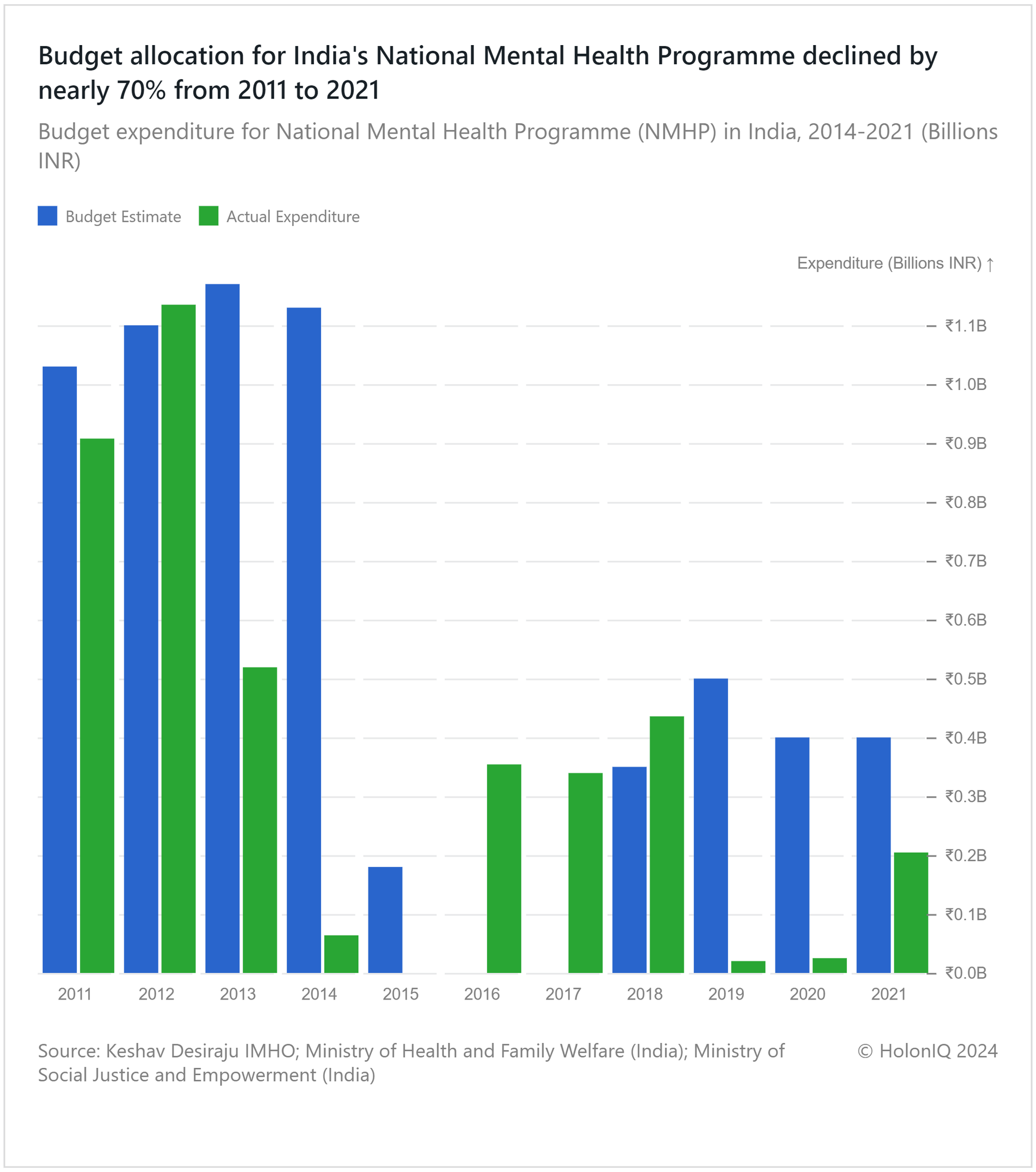🎓 Swedish Female Enrollments Up 10%. 33M Barrels of Oil Consumed. 70% Cut for Mental Health Budget.
Chart of the Day #177 looks at University Enrollments, Oil Consumption and Mental Health
At APPEC, experts noted China's oil demand decreased by over 60% due to cleaner fuels and economic weakness, impacting global and domestic prices. The Biden administration has finalized rules to ensure insurers cover mental health care equally with physical health, addressing longstanding disparities.
Today's Topics
🎓 University Enrollments. Female higher education enrollment in Sweden rises 10%
🛢️ Oil Consumption. 33M barrels of oil consumed by the US and China combined
🧠 Mental Health. 70% fall in India’s national mental health budget
For unlimited access to over one million charts, request a demo.
🎓 Female Higher Education Enrollment in Sweden Rises 10%

Between 2010 and 2021, Swedish higher education enrollment showed a slight increase in male students from about 148,000 to 149,000, while female enrollment increased from 213,000 to 234,000. This trend reflects a growing gender imbalance compared to other Nordic countries, where female enrollment is also increasing but typically at a slower pace. Sweden's rising female student numbers may highlight a regional shift towards greater gender disparity in higher education, calling for targeted policies to ensure balanced gender representation.
🛢️ 33M Barrels of Oil Consumed by the US and China Combined

In 2022, the US led global oil consumption at 19.14M barrels per day, followed by China at 14.30M and India at 5.19M. The US and China accounted for over a third of global use. Significant consumers also included Japan, South Korea, and Europe. Global oil consumption reached 4.53B tons in 2023. Reducing oil consumption is vital to meet the world's 2050 goals of net zero emissions to address climate change.
🧠 70% Fall in India’s National Mental Health Budget

From 2014 to 2021, India’s National Mental Health Programme faced significant underfunding. In 2021, the budget was ₹400M, with actual expenditure at ₹204.6M. This shortfall highlights broader issues of inadequate financial support for mental health, crucial due to rising needs intensified by the COVID-19 pandemic.
Like getting this newsletter? For unlimited access to over one million charts, request a demo.
Thank you for reading. Have a great week ahead!
Have some feedback or want to sponsor this newsletter? Let us know at hello@holoniq.com
